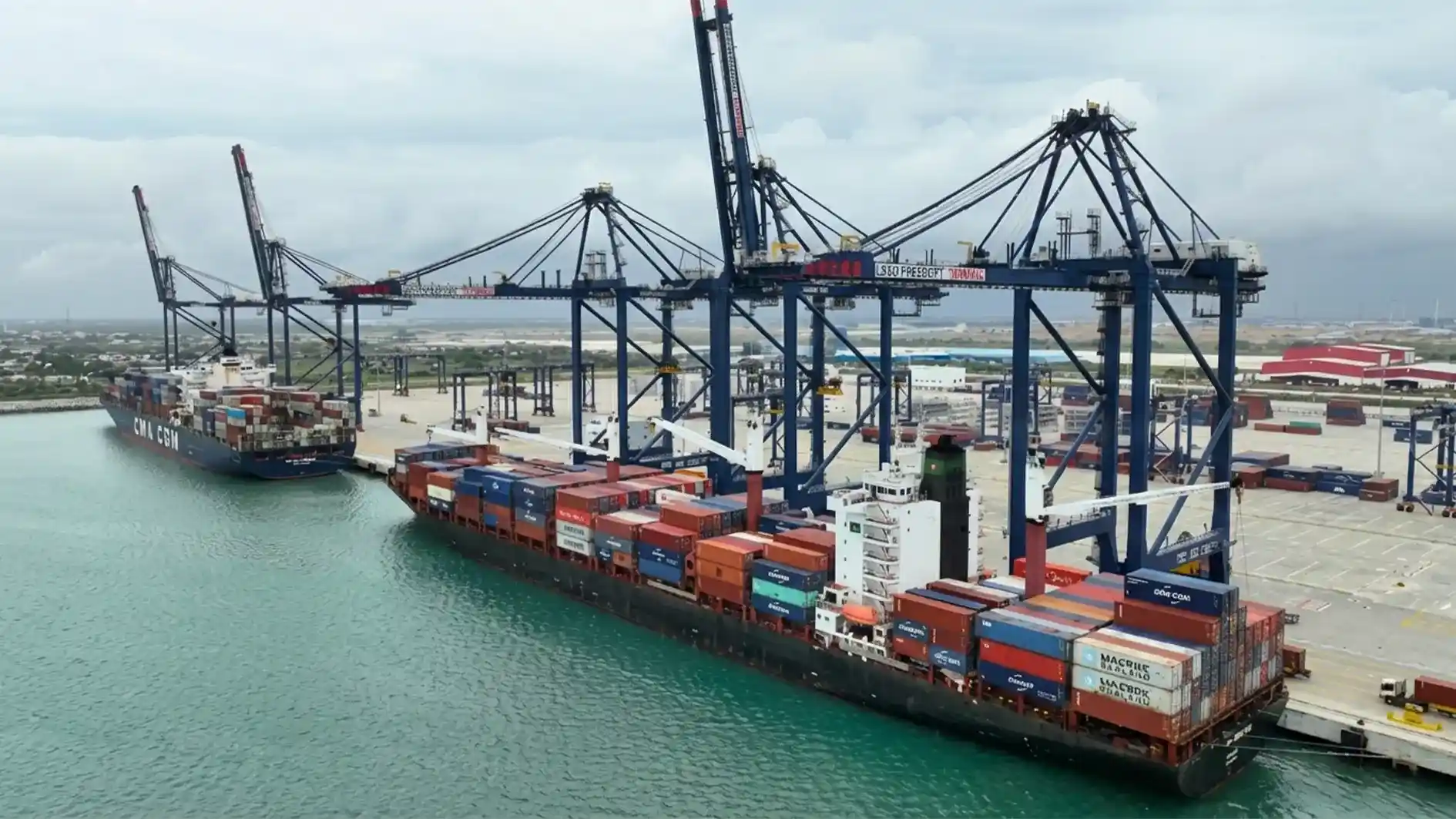Overview and Background
Gautam Adani, one of Asia’s wealthiest individuals and the chairman of Adani Group, had ambitious plans to invest $1.85 billion into Nairobi’s Jomo Kenyatta International Airport (JKIA), Kenya’s largest and busiest airport. The proposal, which involved the transfer of airport management to Adani Group under a 30-year lease, has been met with significant resistance from various quarters in Kenya. The controversy surrounding the deal culminated in a recent ruling by Kenya’s High Court, which temporarily halted the project.
Details of the Investment Proposal
The investment proposal entailed Adani Group’s commitment to expanding and modernizing JKIA in exchange for operating rights for 30 years. The specifics of the expansion included the construction of a new terminal and taxiway, with an initial investment of $750 million by 2029, followed by an additional $92 million for upgrades by 2035. This project represented a strategic move for Adani Group, marking its first foray into airport management outside India, where it currently manages over six airports, including major hubs like Mumbai and Ahmedabad.
Adani Group’s Airport Infrastructure arm, a newly created entity, was to manage and develop JKIA as part of the company’s global expansion strategy. This venture was seen as a critical step in Adani’s broader goal of positioning itself as a global player in airport operations, challenging the dominance of Chinese companies in international infrastructure projects.
Legal and Political Opposition
However, the proposal quickly became a flashpoint for controversy in Kenya. The Kenya Aviation Workers Union, representing around 10,000 transport workers, was one of the most vocal opponents of the deal. The union’s primary concerns revolved around potential job losses and the displacement of local workers by foreign employees under the management of Adani Group. The union’s opposition was so intense that they called for a strike last month to protest the deal, reflecting the deep-rooted anxieties about the implications of such a large-scale foreign investment in a critical national asset.
In addition to the union’s concerns, the deal faced legal challenges from the Kenya Human Rights Commission and the Law Society of Kenya. These groups argued that the lease agreement violated constitutional principles of good governance, accountability, transparency, and the prudent use of public resources. They contended that leasing JKIA, a strategic and profitable national asset, to a private foreign entity was not in the best interest of the Kenyan people.
Faith Odhiambo, president of the Law Society of Kenya, stated that the lawsuit claimed the deal was unaffordable and posed significant fiscal risks to the public. The plaintiffs argued that the Kenyan government could raise the necessary funds to expand JKIA without resorting to a long-term lease with a foreign company, thus preserving the airport’s management under local control.
Government’s Defense and the Economic Context
Despite the backlash, the Kenyan government has defended the deal, emphasizing the urgent need for infrastructure upgrades at JKIA to address capacity issues. The Kenya Airports Authority (KAA), which currently manages JKIA, has acknowledged the challenges posed by the airport’s aging infrastructure and increasing passenger traffic. Acting Managing Director Henry Ogoye of KAA pointed out that the investment required for the necessary upgrades was beyond the government’s fiscal capabilities without private sector involvement. Ogoye assured that the proposal would undergo rigorous technical, financial, and legal reviews to ensure compliance with Kenya’s public-private partnership laws.
The Kenyan government’s support for the deal is also influenced by the broader economic context. Kenya’s economy, like many others in Africa, has been strained by the global economic slowdown, exacerbated by the COVID-19 pandemic. With limited fiscal space and growing public debt, the government has been increasingly looking to private investors to fund large infrastructure projects. The proposed deal with Adani Group was seen as a way to attract much-needed foreign investment while also addressing critical infrastructure needs.
Adani Group’s Global Expansion Strategy
For Adani Group, the JKIA deal was part of a broader strategy to expand its airport operations globally. The company already controls a portfolio of eight airports in India, handling over 23% of the country’s air traffic and serving 20% of the total passenger base. The group’s ambition to become a global leader in airport management is evident from its ongoing and planned projects, including ports in Tanzania and Sri Lanka.
The proposed investment in JKIA was particularly significant as it represented Adani Group’s first airport operation outside India. This move was seen as a key step in challenging China’s dominance in global infrastructure, particularly in Africa, where Chinese companies have been heavily involved in building and operating major projects as part of the Belt and Road Initiative (BRI).
Strategic Rivalry Between India and China
The halted JKIA deal is also emblematic of the broader strategic rivalry between India and China for influence in Africa. Both countries have been investing heavily in the continent, with China leading the way through its BRI, which has financed infrastructure projects across Africa. Chinese President Xi Jinping recently announced a $51 billion pledge to support African infrastructure projects, job creation, and aid for debt-stricken countries over the next three years.
In response, India has been ramping up its own investments in Africa, with companies like Adani Group at the forefront. Adani’s expansion into Africa, including the JKIA deal, is part of a larger effort to position India as a key player in global trade and infrastructure. Karan Adani, Managing Director of Adani Ports & Special Economic Zone Ltd., has articulated the company’s vision of making India the central hub in the global supply chain, competing directly with China’s influence in the region.
Impact on India-Kenya Relations
The controversy surrounding the JKIA deal also has potential implications for India-Kenya relations. India has been strengthening its ties with African nations, with a particular focus on economic and infrastructure cooperation. The Indian government has been keen to support Indian companies like Adani Group in expanding their operations in Africa, seeing it as a way to deepen bilateral relations and counter China’s influence.
However, the backlash against the JKIA deal in Kenya could strain these relations. Indian opposition parties have already expressed concerns about the potential diplomatic fallout, with Congress leader Jairam Ramesh warning of a possible backlash against India due to the protests in Kenya. The situation underscores the delicate balance India must maintain as it seeks to expand its influence in Africa while respecting the sovereignty and concerns of its partner nations.
Future Outlook
As the legal battle over the JKIA deal unfolds, the future of Adani Group’s investment in Kenya remains uncertain. The High Court’s suspension of the deal is a significant setback for both Adani Group and the Kenyan government, which had hoped to move forward with the project to address critical infrastructure needs.
The case also highlights the broader challenges faced by foreign investors in Africa, where deals involving strategic national assets often encounter strong resistance from local stakeholders. While foreign investment is crucial for economic development, it must be balanced with the interests and concerns of local communities to ensure sustainable and mutually beneficial outcomes.
In the meantime, Adani Group is likely to continue its global expansion efforts, seeking opportunities in other markets while navigating the legal and political complexities of its existing projects. For Kenya, the suspension of the JKIA deal may prompt the government to explore alternative ways to fund the airport’s expansion, possibly through other private sector partnerships or public financing options.
Conclusion
The suspension of Gautam Adani’s $1.85 billion investment in JKIA is a significant development in Kenya’s aviation sector, with far-reaching implications for the country’s infrastructure, economy, and international relations. As the legal and political battles continue, the outcome of this case will be closely watched by stakeholders both in Kenya and abroad, as it may set a precedent for future foreign investments in the country. For Adani Group, the case is a reminder of the complexities and risks involved in international expansion, particularly in markets with strong local opposition to foreign involvement in strategic national assets.
Photo source: Google
By: Montel Kamau
Serrari Financial Analyst
10th September, 2024
Article, Financial and News Disclaimer
The Value of a Financial Advisor
While this article offers valuable insights, it is essential to recognize that personal finance can be highly complex and unique to each individual. A financial advisor provides professional expertise and personalized guidance to help you make well-informed decisions tailored to your specific circumstances and goals.
Beyond offering knowledge, a financial advisor serves as a trusted partner to help you stay disciplined, avoid common pitfalls, and remain focused on your long-term objectives. Their perspective and experience can complement your own efforts, enhancing your financial well-being and ensuring a more confident approach to managing your finances.
Disclaimer: This article is for informational purposes only and does not constitute financial advice. Readers are encouraged to consult a licensed financial advisor to obtain guidance specific to their financial situation.
Article and News Disclaimer
The information provided on www.serrarigroup.com is for general informational purposes only. While we strive to keep the information up to date and accurate, we make no representations or warranties of any kind, express or implied, about the completeness, accuracy, reliability, suitability, or availability with respect to the website or the information, products, services, or related graphics contained on the website for any purpose. Any reliance you place on such information is therefore strictly at your own risk.
www.serrarigroup.com is not responsible for any errors or omissions, or for the results obtained from the use of this information. All information on the website is provided on an as-is basis, with no guarantee of completeness, accuracy, timeliness, or of the results obtained from the use of this information, and without warranty of any kind, express or implied, including but not limited to warranties of performance, merchantability, and fitness for a particular purpose.
In no event will www.serrarigroup.com be liable to you or anyone else for any decision made or action taken in reliance on the information provided on the website or for any consequential, special, or similar damages, even if advised of the possibility of such damages.
The articles, news, and information presented on www.serrarigroup.com reflect the opinions of the respective authors and contributors and do not necessarily represent the views of the website or its management. Any views or opinions expressed are solely those of the individual authors and do not represent the website's views or opinions as a whole.
The content on www.serrarigroup.com may include links to external websites, which are provided for convenience and informational purposes only. We have no control over the nature, content, and availability of those sites. The inclusion of any links does not necessarily imply a recommendation or endorsement of the views expressed within them.
Every effort is made to keep the website up and running smoothly. However, www.serrarigroup.com takes no responsibility for, and will not be liable for, the website being temporarily unavailable due to technical issues beyond our control.
Please note that laws, regulations, and information can change rapidly, and we advise you to conduct further research and seek professional advice when necessary.
By using www.serrarigroup.com, you agree to this disclaimer and its terms. If you do not agree with this disclaimer, please do not use the website.
www.serrarigroup.com, reserves the right to update, modify, or remove any part of this disclaimer without prior notice. It is your responsibility to review this disclaimer periodically for changes.
Serrari Group 2025
















